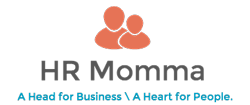A New OS for Businesses
I saw an email the other day where a grandson asked his grandmother about her growing up days. She went on to explain all of the things her generation didn’t have available that are taken for granted today. At the end of the long list, it was disclosed she was “only” 59 years old today!
Oh, that hit home.
It made me realize the changes that us Boomers have experienced in our lifetimes and that indeed, changes are going on right now that will shape the world of work to come.
And it’s a good thing.
Boomers and Gen Y are leading the way to a world not so driven by profit, but by purpose and contribution. It’s almost like they are saying “I’m mad as hell and I’m not going to take it anymore!!” (Remember that cry?)
This month I want to briefly explain what some of these profound changes are and what they could mean to you in business and in your personal life. I will focus on strengths and motivation. I’ll also blog it so please…I’d like your comments. I’ll share them in future newsletters if there are enough!
Building on Strengths
Marcus Buckingham and Curt Coffman wrote “First, Break All the Rules” and later followed with Marcus and Donald Clifton writing “Now, Discover Your Strengths“. This gave birth to the Clifton Strengths Finder assessment administered by our friends at Gallup. So?
Most of our lives have been focused on improving our deficiencies. Your parents marveled at your “A”s on your report card, but commented that you needed to improve those B’s or C’s. So the focus was on getting those grades up, the path of most resistance. Our fixation on deficits affects young people in the home and classroom. At work, many performance reviews focus on “development plans” to help you be a more rounded person.
The truth is each person has greater potential for success in specific areas, and the key to human development is building on who you already are! The key is for you to be aware of your potential AND your limitations.
Tom Rath now has taken it to a new level with Strengths Finder 2.0 which includes a code to take the StrengthsFinder assessment. Not a bad deal for $13. You can find out your top five strengths of the 34 themes.
So what?
We talk a lot about employee engagement (or at least I do!) and the impact on business outcomes. After surveying 10 MILLION people, Gallup concluded that if you don’t have a chance to use your strengths at work, you’re SIX TIMES less likely to be engaged in your job. In other words, “you dread going to work, have more negative than positive interactions with colleagues, treat your customers poorly, tell your friends what a miserable company you work for, achieve less on a daily basis, and have fewer positive and creative moments.” Well, THAT’s what!
Talent (a natural way of thinking, feeling or behaving)
X Investment (deliberate practicing, developing skills, building knowledge) =
Strength (the ability to consistently provide near-perfect performance)
Some of my clients and I are working on building a Strengths-Based culture and are looking at other companies as models who have already used this approach. By next year, we should have some surprising results to share. It’s radical, but it makes good business sense to maximize our talent development & deployment strategies!
Motivation 3.0
OK, I’m already enthralled with behavior and social science. I want to know what makes people tick, especially what motivates them. I suspected some time ago, a lot of what we were using in the corporate world (mostly carrots and sticks) wasn’t getting it anymore. It seemed contrary to what social scientists tell us about human nature. For instance, rewards can have a negative effect on performance! So there is a mis-match between what science knows and business does.
A great book came out last year that explains why reward and punishment systems no longer serve this new world of work. The book is by Daniel Pink–Drive,
Packed with interesting studies, this book shines a light on what motivates the people of today: our innate need to direct our own lives, to learn and create new things, and to do better by ourselves and our world. He calls it Type I, a way of thinking and an approach to business, grounded in the real science of human motivation.
Type I behavior can improve performance and deepen our satisfaction by employing three elements: autonomy (our desire to be self-directed), mastery (our urge to get better and better at what we do) and purpose (our yearning to be part of something larger than ourselves).
The old operating system, Motivation 2.0, was based on the assumption that the way to improve performance, productivity and excellence is to reward the good and punish the bad. Kinda like training animals. It worked very well until it didn’t.
Intrinsic motivation always trumps extrinsic motivators. We need to create an environment where our innate psychological needs can flourish. Notice the new kind of thinking in the positive psychology movement? A few months ago I wrote that the Happiness course at Harvard was it’s most popular course EVER. Many businesses are going beyond “flexible hours” to a ROWE (results only work environment) where employees are totally responsible for their results, not hours worked, meetings attended, or at the office time. Results, autonomously. Many companies like Zappos and JetBlue are also part of a movement to restore some measure of employee freedom in jobs usually know for a lack of it by offering jobs at home, unmonitored (“Homeshoring” vs. Offshoring”). The world is moving to greater freedom. Down with micromanagers!
When you move your employees from compliance to engagement, the results speak for themselves. Mihaly Csikszentmihalyi (don’t ask me to pronounce that), wrote about “flow”, that balanced place when we live deeply in the moment, so utterly in control with no sense of time, place or even self. And he says people are more likely to experience that state at work rather than leisure! This is where innovation and creativity reside, the very characteristics organizations need to survive in a world where transactional business can be easily done by computers.
Our current operating system has become less compatible with how we organize what we do, how we think about what we do and how we do what we do!
I could go on and on about this new world coming, including the new corporate legal structures forming that focus more on purpose than profits, the open-source projects of some of our most popular products (Wikipedia and Mozilla) –all done for FREE by people who are this new kind of motivated beings.
But you will need to wait until next month! In the meanwhile, Dan Pink can entertain you HERE.


